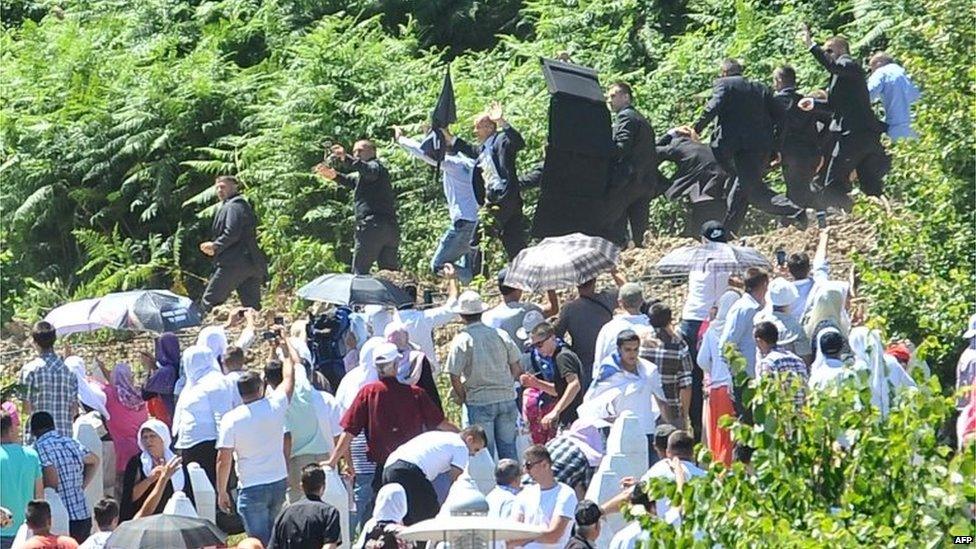Serbian and Bosnian governments hold historic joint session
- Published

Serbian PM Aleksandar Vucic (right) said it was impossible for the two countries not to cooperate
The Serbian and Bosnian governments have held their first joint session in Sarajevo.
The two sides are seeking to improve relations more than two decades after the conflict during the break-up of Yugoslavia.
Serbian Prime Minister Aleksandar Vucic was quoted as saying that Serbia wished to become Bosnia's largest trading partner.
Both countries aspire to European Union membership.
Security has been tightened in Bosnia for the visit.
In July, Mr Vucic was attacked by stone-throwing mourners at a commemoration service in Srebrenica, where thousands of Bosnian Muslims were massacred by Bosnian Serb forces in 1995.
More than 100,000 people were killed during the 1992-95 war in Bosnia, during which Serbia backed Bosnian Serbs in their effort to secede and join Serbia.

Mr Vucic and his delegation scrambled to their cars after the attack in Srebrenica in July
Mr Vucic is scheduled to return to Srebrenica on 11 November for a development conference.
The joint session was expected to see agreements signed on the protection of cultural heritage, the search for missing persons, environmental protection and telecommunications.
The two sides also discussed infrastructural and energy projects, including a Belgrade-Sarajevo railway, Serbian news agency Tanjug reported.
Ahead of the joint session, Mr Vucic said that despite the arguments of "hotheads" on both sides, it was impossible for the two states to avoid cooperating with each other.
He said they were "so intertwined that we will have to be together for hundreds of years," according to Bosnia's private Onasa news agency.
Denis Zvizdic, the chairman of Bosnia's Council of Ministers, was quoted as saying the visit was important not only for development but also "in a symbolic sense".
- Published2 September 2014
- Published11 July 2015
